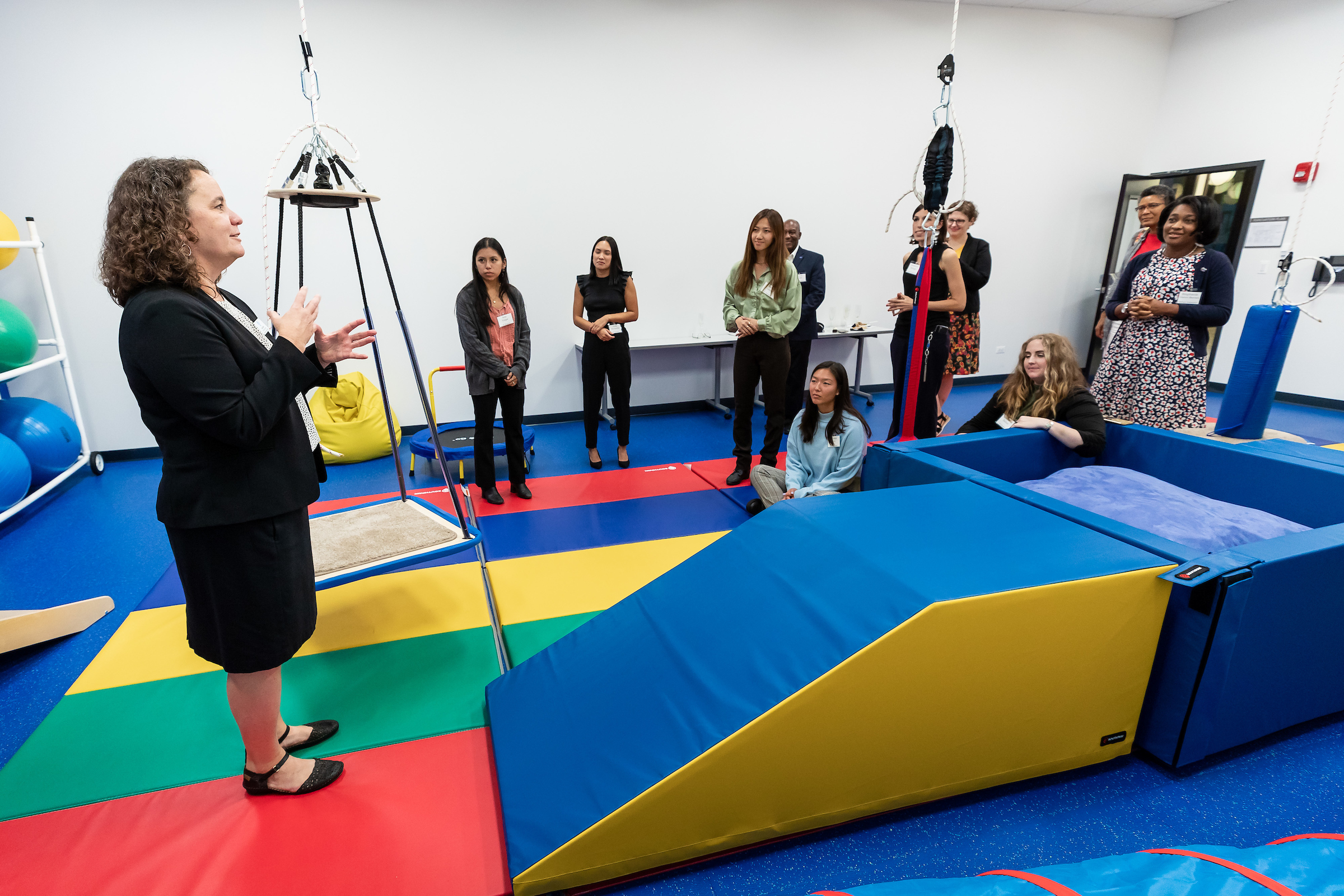
Program director Kate Barrett gives a tour of the occupational therapy program's motor gym. (DePaul University/Jeff Carrion)
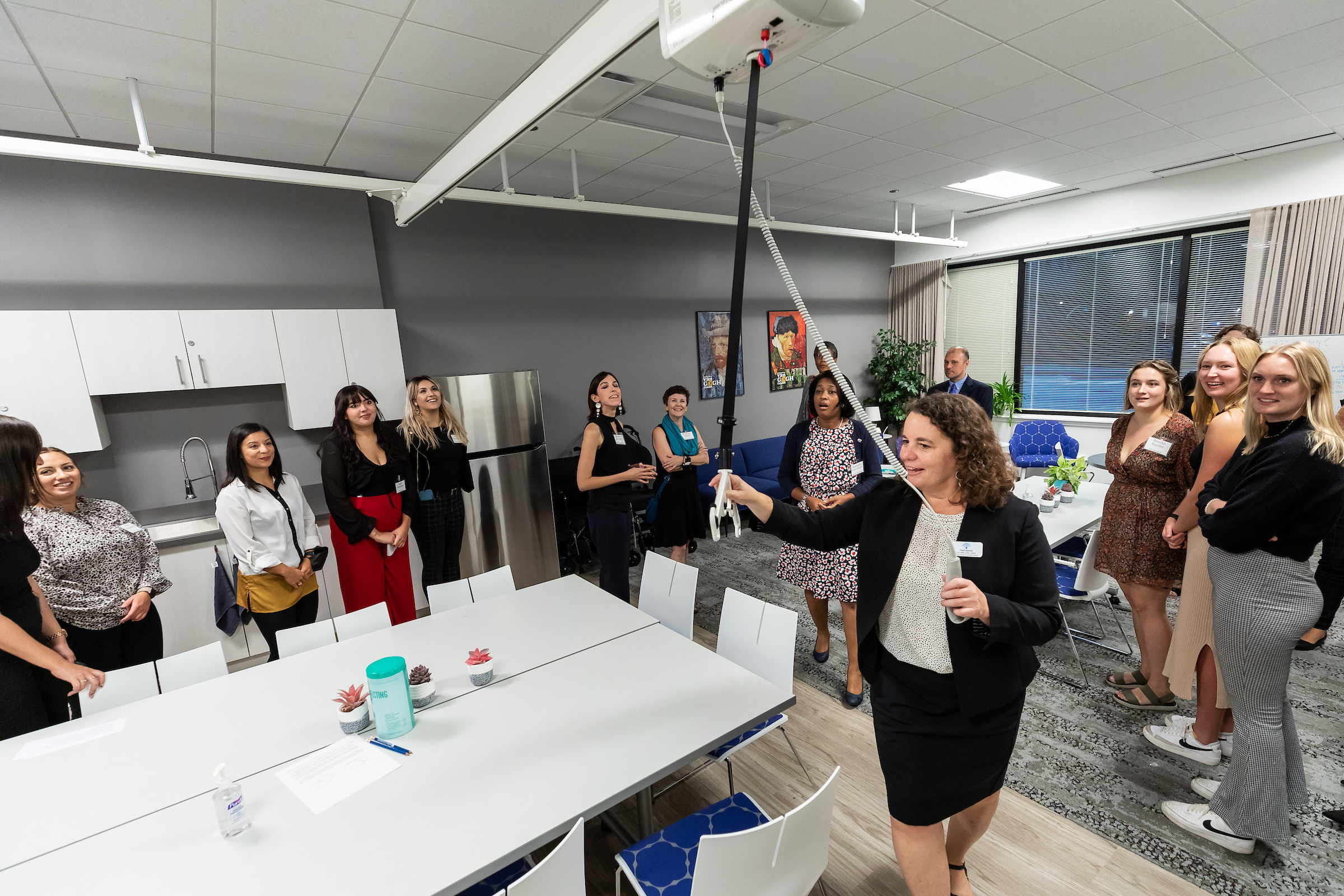
Barrett demonstrates the Hoyer lift in the OT apartment. (DePaul University/Jeff Carrion)
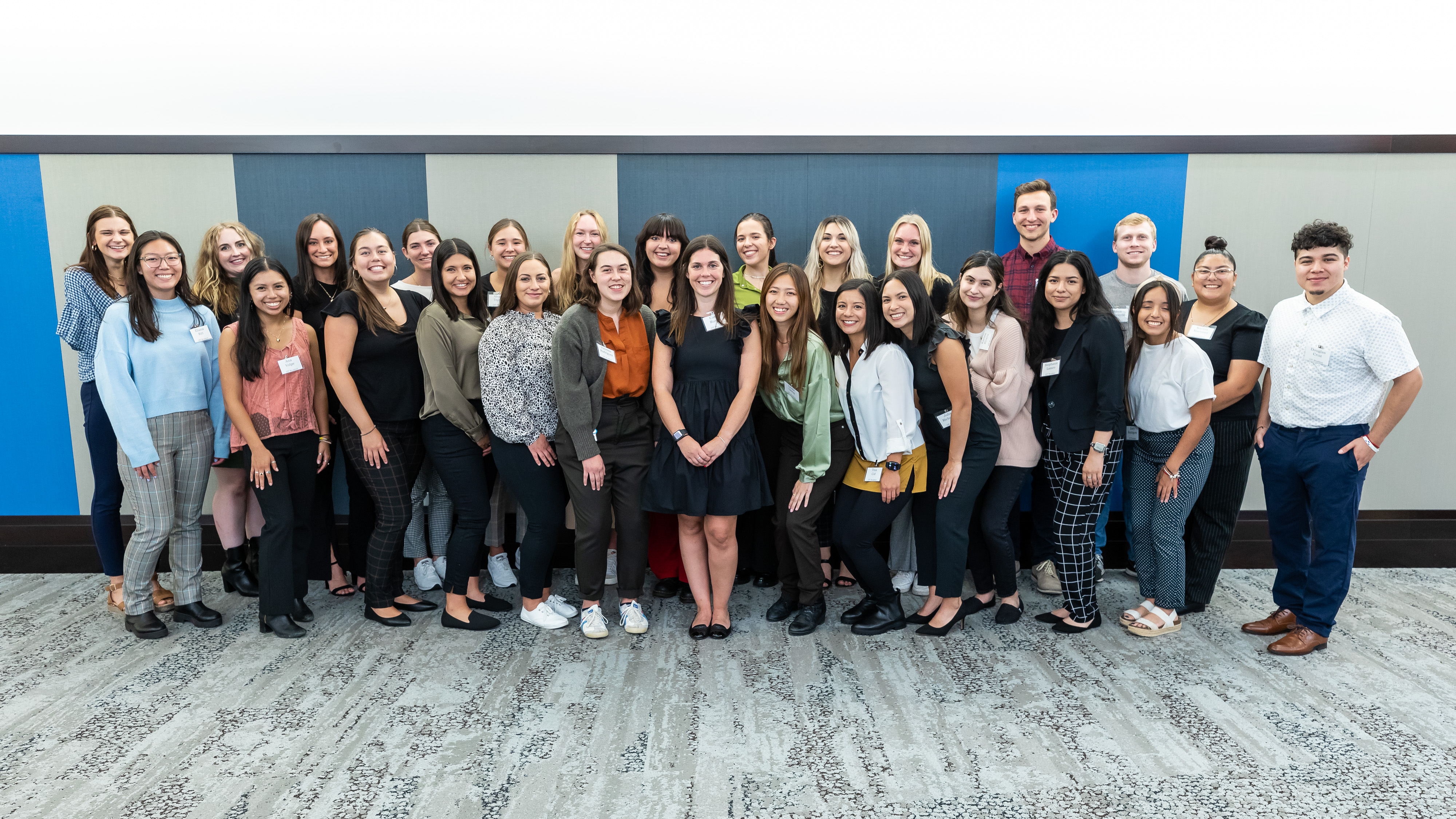
The first cohort of occupational therapy master's students begin their studies at DePaul this quarter. (DePaul University/Jeff Carrion)
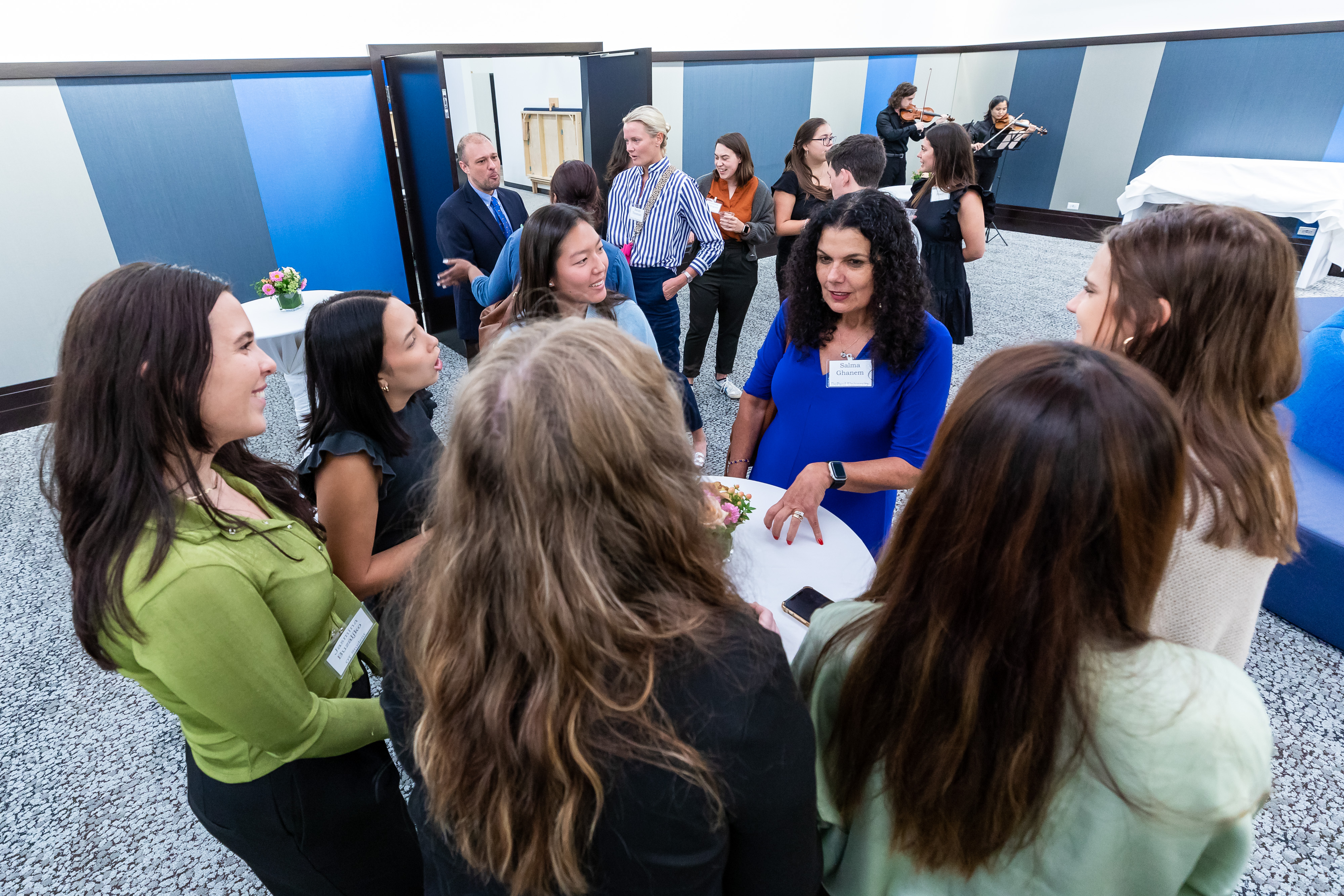
Provost Salma Ghanem speaks with students at the opening event.
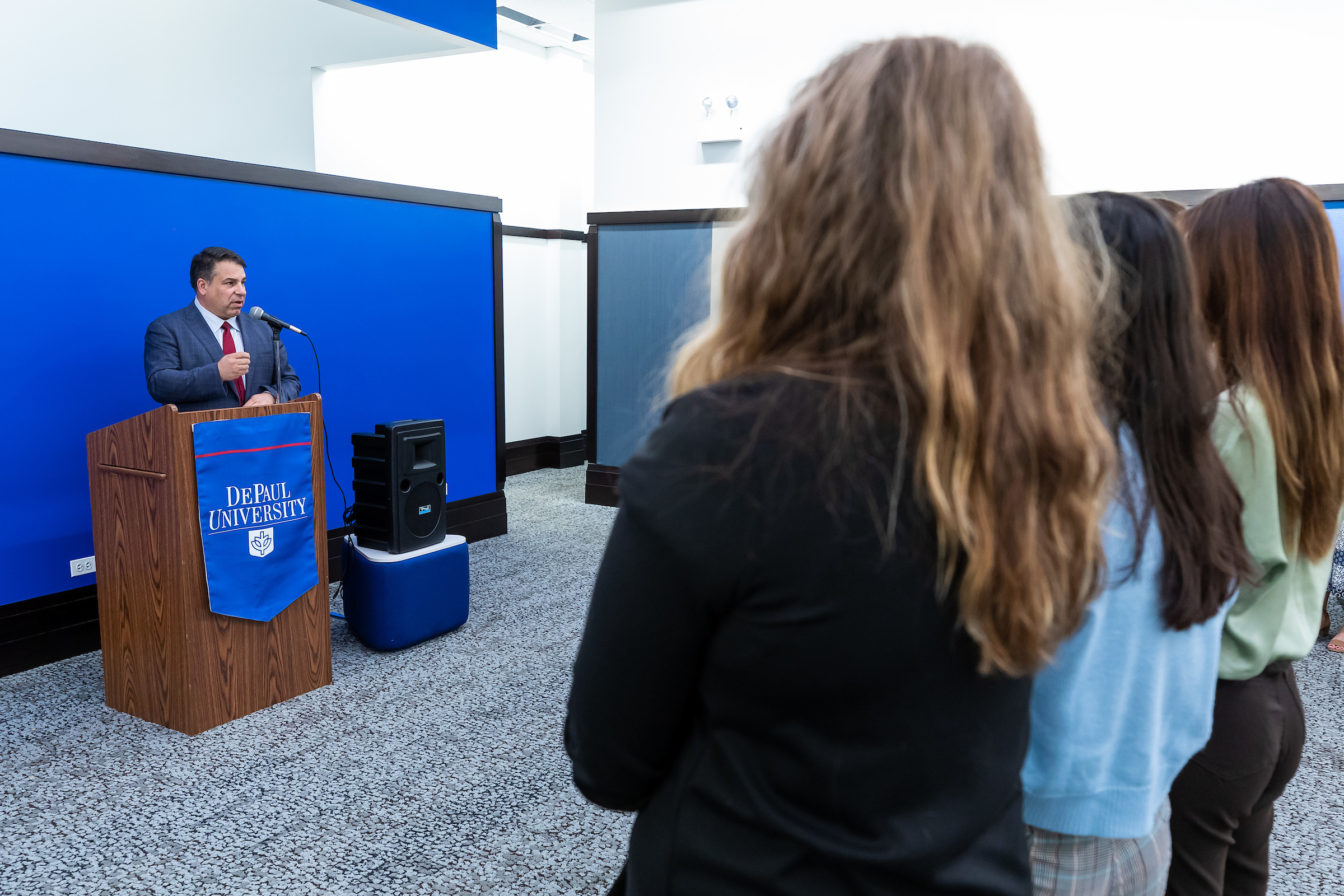
President Rob Manuel speaks at the opening event. (DePaul University/Jeff Carrion)
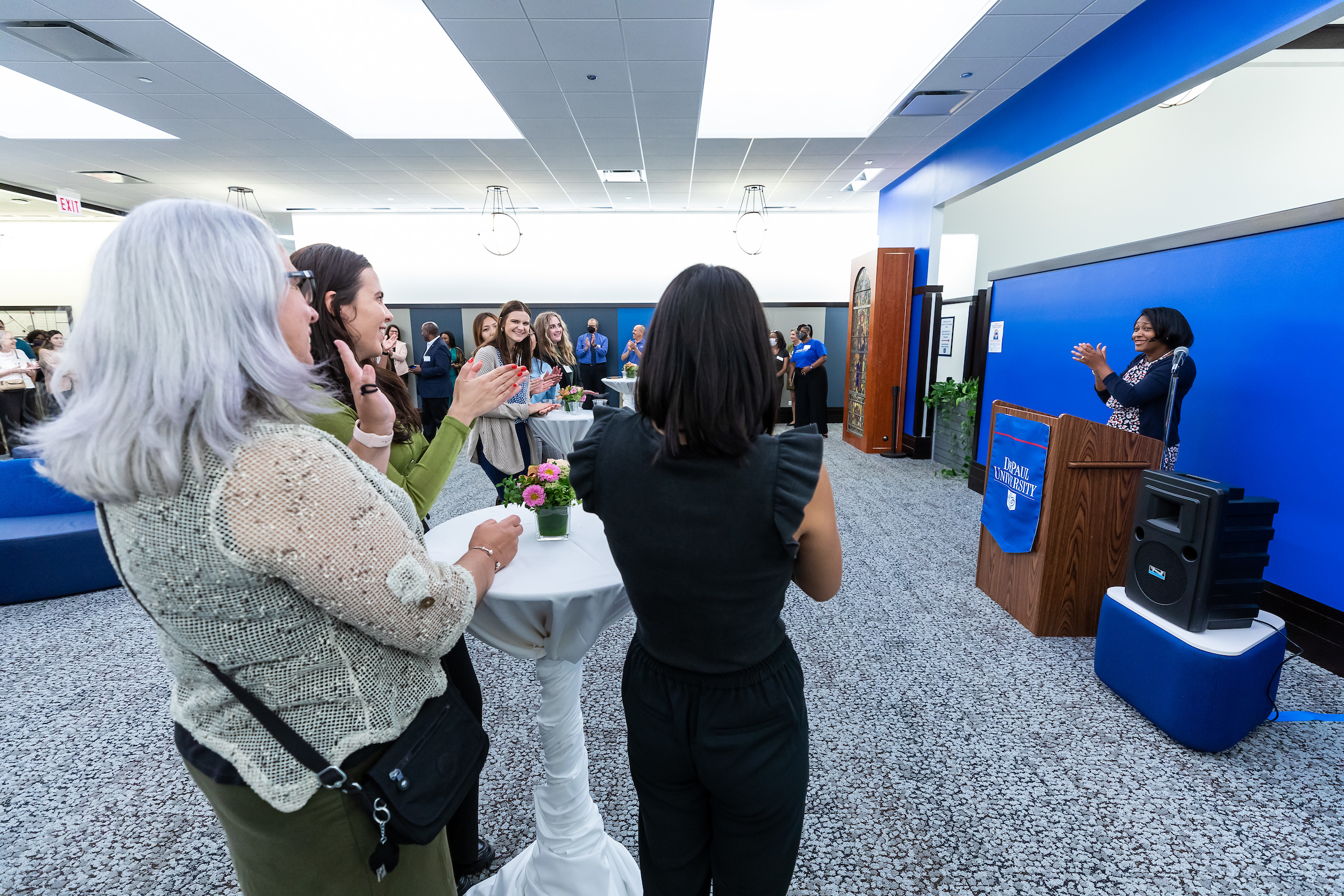
Stephanie Dance-Barnes, dean of the College of Science and Health, speaks at the opening event for occupational therapy. (DePaul University/Jeff Carrion)
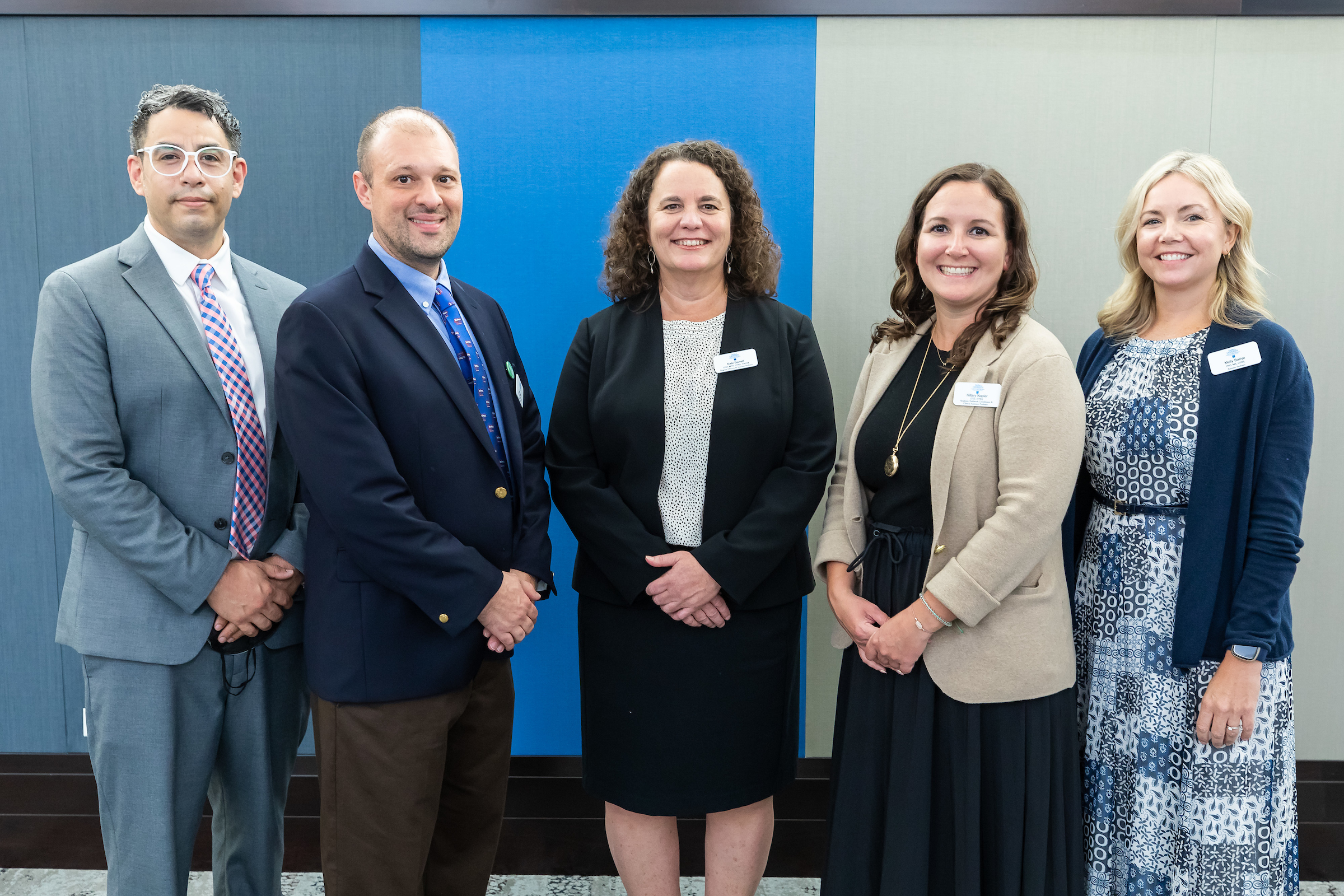
Program assistant Damien Rodriguez joins faculty members Brad Egan, Barrett, Hillary Napier and Molly Bathje for a photo. (DePaul University/Jeff Carrion)
Within the new space for
DePaul’s Occupational Therapy program, there is a neatly decorated, fully furnished apartment. The kitchen, bathroom and bedroom are spaces where the first cohort of OT master’s students will analyze and practice the occupations of daily living.
“These are adaptable learning spaces, where students will learn how to work with clients to cook, do laundry, make a bed, care for a baby, and make tub or shower transfers,” said
Kate Barrett, associate professor and program director. Looking up at the ceiling, visitors noticed a track that weaves through the space.
“This is the Hoyer lift system that accesses the entire apartment, so students learn how to work with people with limited mobility, safe body mechanics and functional transfers,” Barrett said.
At an opening event, DePaul OT officially welcomed 31 students as well as community partners, fieldwork educators, and DePaul faculty and staff. Located at 2400 N. Sheffield Ave., the OT apartment, classrooms and motor gym reside alongside the Speech-Language Pathology program and its community clinic, now in its second year. Every thoughtful detail of the space and curriculum signals the faculty’s greater intention: To prepare students to serve those most in need.
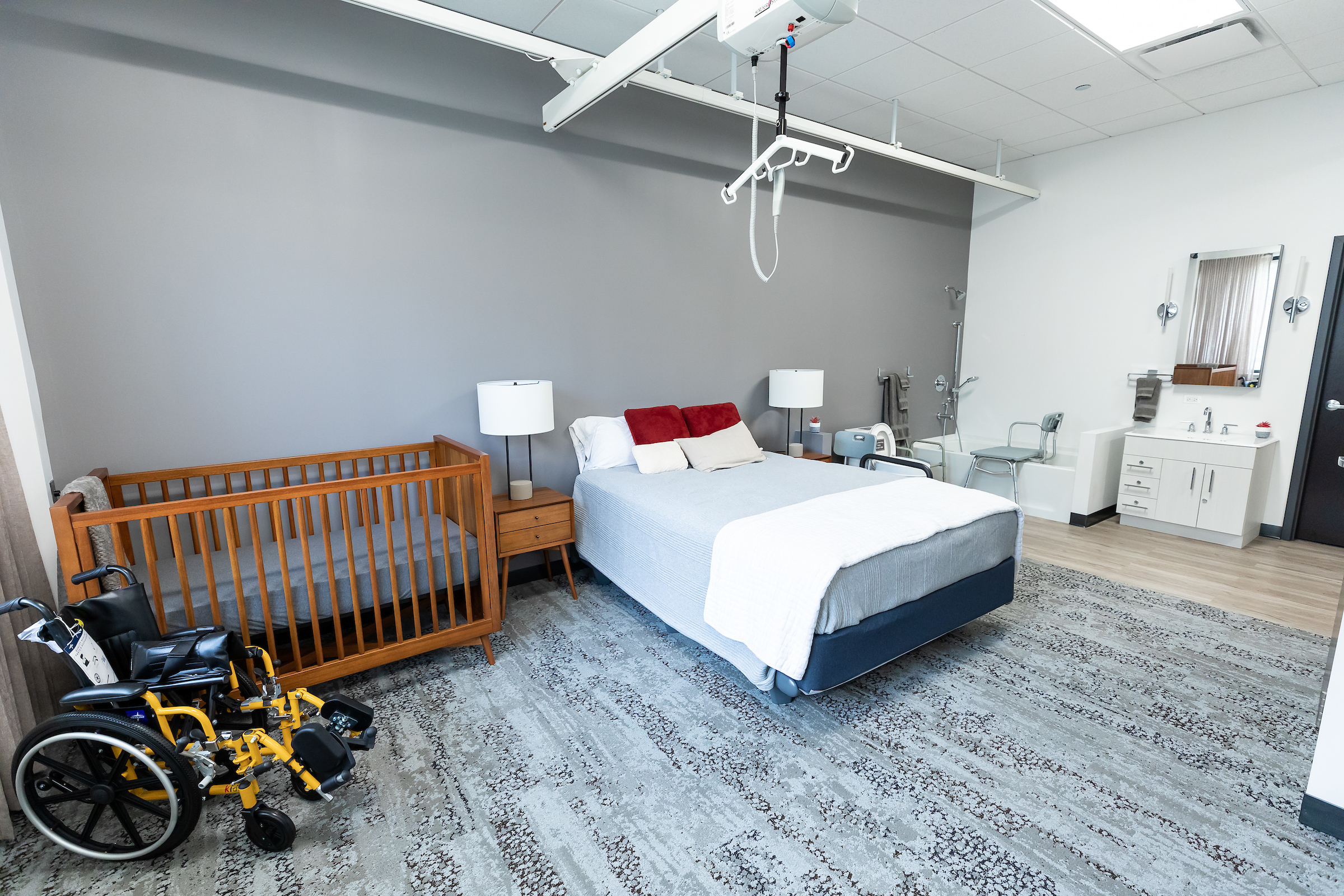 The OT apartment learning space gives students real world experience to prepare for working with clients. (DePaul University/Jeff Carrion)
The OT apartment learning space gives students real world experience to prepare for working with clients. (DePaul University/Jeff Carrion)
“DePaul’s occupational therapy program exemplifies educational creativity at its finest,” President Rob Manuel said after the event. “From our innovative learning spaces to clinical placements with community organizations, DePaul’s occupational therapy students are connecting our Catholic, Vincentian mission directly to the needs of Chicago.”
DePaul OT students will prepare to work with diverse individuals, populations and communities across the lifespan, and community partners will be at the heart of that work. In her remarks, Barrett welcomed organizations from throughout Chicagoland that have committed to hosting DePaul students during their community and clinical placements.
In attendance were a few of these partners: ReVive addresses housing insecurity. Bethany House and Viator House support asylum seekers. Both located in Chicago’s Austin neighborhood, Project Exploration offers STEM education to students and Bethel New Life provides seniors with independent and supportive living. In the education space, PACE supports college students with disabilities, and Urban Therapeutic Solutions provides OT to students in schools throughout the South and West sides of Chicago.
These connections to Chicago and the students’ commitment to serve diverse populations resonated with many at the event.
“As a college, we are committed to fostering a stronger culture of equity and inclusion and celebrating the diversity of our faculty, staff and students,” said Stephanie Dance-Barnes, dean of the College of Science and Health. She added that DePaul’s clinical programs, including OT, present “tremendous opportunities and pipelines for our various undergraduate majors to become healthcare professionals.”
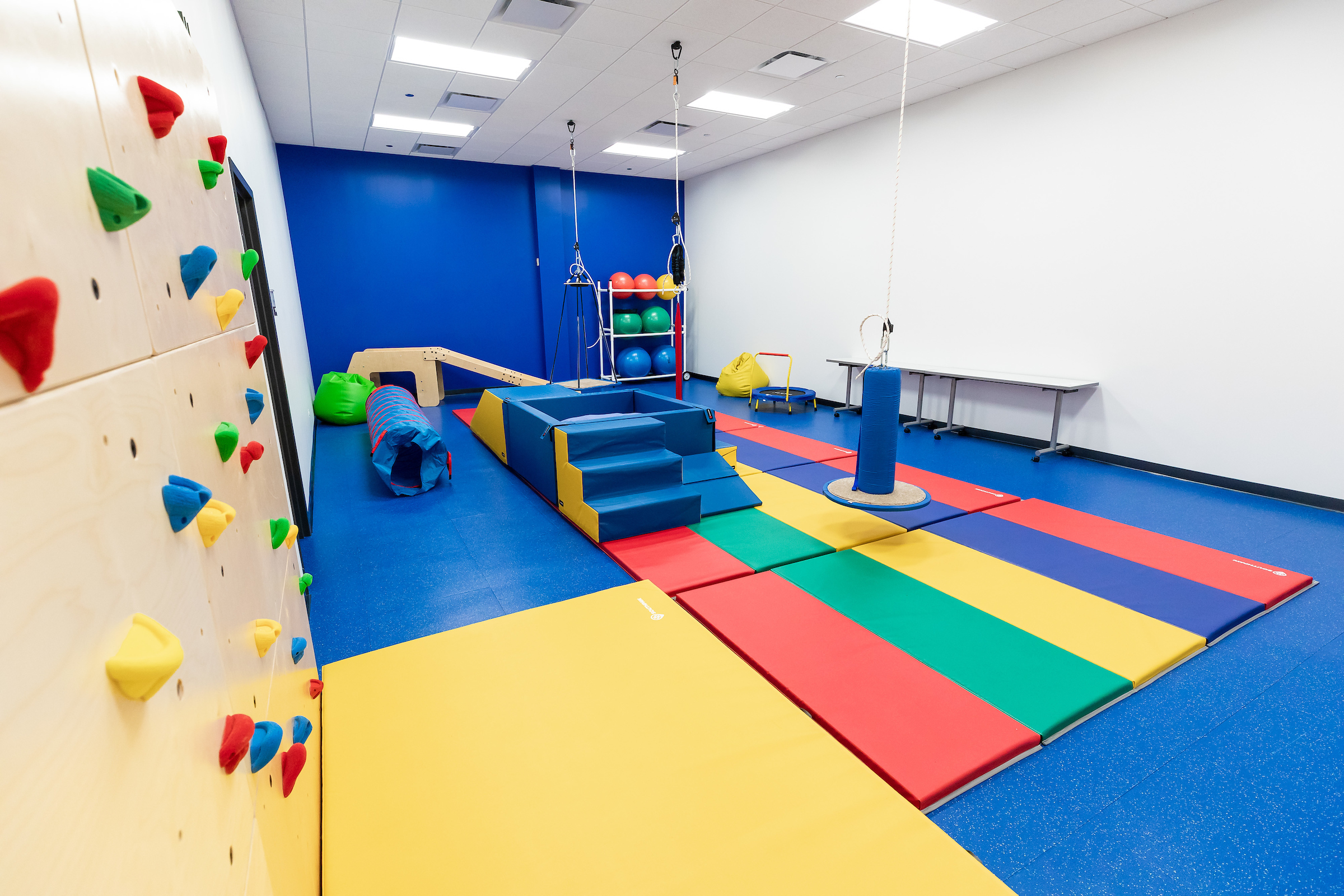 The motor gym helps students understand how exercise and meditation can be used to support emotional and mental health well-being across the life span. (DePaul University/Jeff Carrion)
The motor gym helps students understand how exercise and meditation can be used to support emotional and mental health well-being across the life span. (DePaul University/Jeff Carrion)Down the hallway, visitors toured the colorful motor gym. “This is where OT students will learn about sensory processing and how to use swings, climbing, obstacle courses and physical activity to help kids with sensory processing challenges participate in meaningful activities,” Barrett said. The motor gym will also be used to help students understand how occupations such as exercise and meditation can be used to support emotional and mental health well-being across the life span.
In the classroom, tables and chairs can be moved to support small group learning. The plinths on the side walls come down like ‘therapy tables’ to practice range of motion and therapeutic positioning. The back of the room has plenty of storage for models, equipment and learning materials.
Among the OT faculty at the event were Hillary Napier, who serves as academic fieldwork coordinator, placing each student in their clinical rotations. Faculty member Molly Bathje teaches an evidence-based practice course and an inter-professional course with Elia Olivares in Speech-Language Pathology. Brad Egan is helping to develop the Foundations of OT course and a collaborative course with an adjunct faculty member from Shirley Ryan AbilityLab on neurology and occupational performance.
“The work that each of you do reflects DePaul’s mission of radical hospitality and prioritizing marginalized groups and populations,” Barrett said. “Thanks to each and every one of you for being here and supporting our curriculum in a very special way.”
Learn more about Occupational Therapy at DePaul.